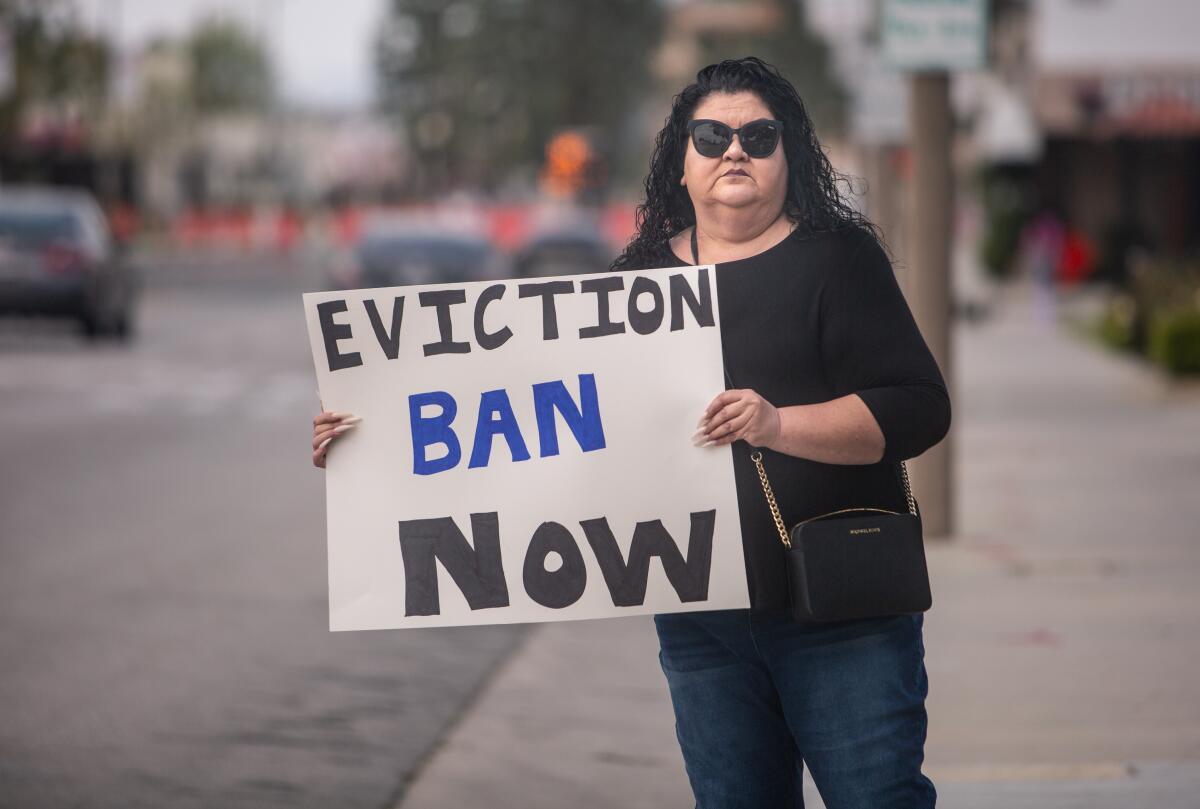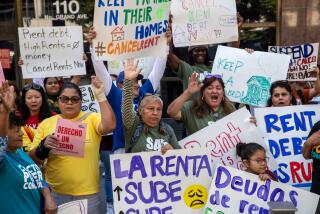Editorial: Congress and Biden failed tenants by letting the eviction moratorium expire

- Share via
The expiration of the federal eviction moratorium over the weekend is a devastating example of governmental failure.
In December and again in March, Congress voted to spend a total of $46.6 billion on federal rent relief for tenants who fell behind on their rent because of the pandemic. There was bipartisan support to create this unprecedented program because members of Congress, along with President Trump and later President Biden, recognized the real societal and economic benefits to keeping tenants housed and landlords whole.
Yet despite the good intentions, it’s taken longer than expected to get relief into the hands of tenants and landlords. Just $3 billion — 6% of the funding — had reached people in need by the end of June, according to the Treasury Department.
That’s why it’s so mind-boggling that Congress and Biden didn’t act to extend the national eviction moratorium a little bit longer so rent relief dollars could reach tenants and landlords. It’s cruel to end the moratorium when there is money available that could prevent the tremendous upheaval that eviction represents for tenants, and the well-documented long-term repercussions.
As of June, an estimated 5.6 million renters owed a total of $24 billion in back rent, according to Mark Zandi, an economist at Moody’s Analytics. In theory, there should be plenty of money available to pay off qualified tenants’ rent debt. But states and localities have struggled to get the funding out. They had to build rent-relief distribution programs from scratch and manage onerous application requirements.
Because of those delays, some states have chosen to give tenants more time to receive rent relief before resuming evictions. In California, Gov. Gavin Newsom and lawmakers extended the eviction moratorium through Sept. 30. Other states, including Oregon and Nevada, have temporarily barred evictions from moving forward against tenants who have applied for aid. Why didn’t Congress or the Biden administration pursue these logical, humane approaches?
The Supreme Court decided at the end of June that the Biden administration could not simply extend the moratorium. Congress would need to pass legislation. Despite the looming July 31 deadline, neither Congress nor the Biden administration showed any real urgency to act until late last week. A last-minute scramble by Democrats to delay evictions a couple more months fell apart and the moratorium expired.
Landlord groups have been pressuring Congress and the Biden administration to let the moratorium expire. There’s an understandable frustration. Property owners have been forced to forgo payments for more than a year, and mom-and-pop landlords have been hit especially hard. In an ideal world of government efficiency, those landlords would already have relief in hand and rent debt erased.
Instead, the U.S. now faces a patchwork of eviction misery, with some communities preparing for a surge of displaced families. Those most vulnerable to eviction are the groups that have been hardest hit by the pandemic economic fallout, including low-wage workers and single parents in Black, Latino and Indigenous households.
This is just the kind of pain that lawmakers intended to prevent when they passed the rent relief programs. By allowing the national eviction moratorium to expire, Congress and the Biden administration gutted their own good intentions.
More to Read
A cure for the common opinion
Get thought-provoking perspectives with our weekly newsletter.
You may occasionally receive promotional content from the Los Angeles Times.










